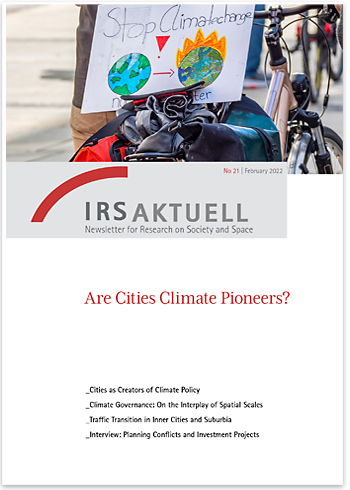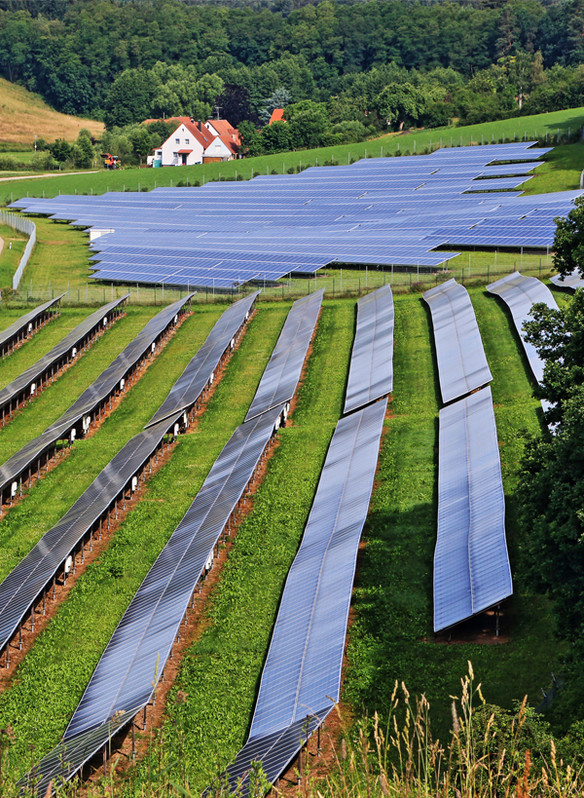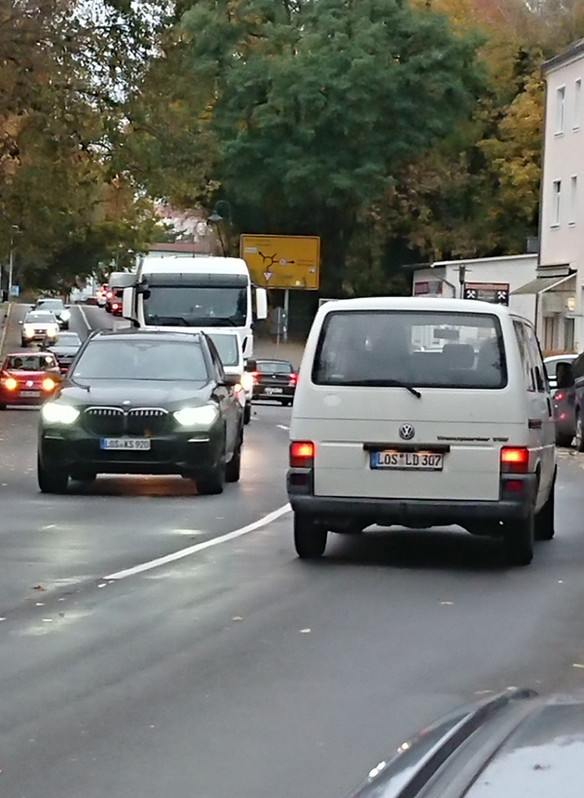Main Content
Are Cities Climate Pioneers?
No 21 | February 2022

In this issue, we turn our attention to cities and their – possible – role as pioneers of climate policy. The IRS has been researching the spatial dimensions of energy transition for quite some time. Three years ago, the question of climate policy approaches in cities, in Germany as well as in the European context, was added. In the title articles of this issue, we ask which cities are actually becoming active in climate policy, how they are doing it, which historical and structural factors influence the activities, and how current events affect them. We "zoom in" and ask what the relationship is between the core city and the surrounding area, for example in the transport transition, and how other levels – federal, state, EU – shape climate policy at the local level. Finally, we delve into the often conflictual negotiations surrounding concrete planning projects that municipalities face in the context of ecological and economic transformations .





